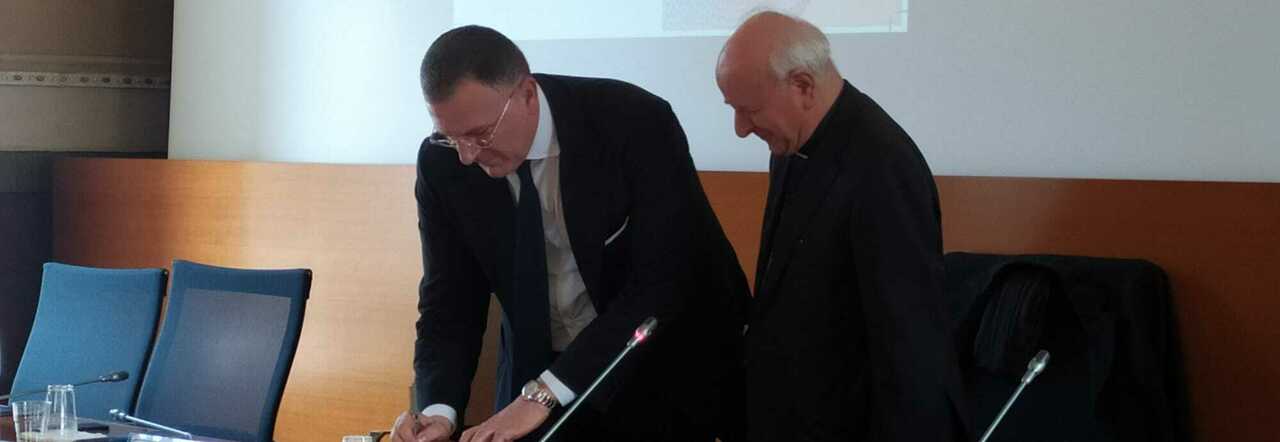Adopting an Ethical Approach to AI Development and Use

Tuesday 12 March 2024, 18:09
2 Minutes of Reading
Adopting an ethical approach to the development and use of artificial intelligence, emphasizing the importance of responsibility by governmental organizations, institutions, and the private sector. This is the objective of the "Rome call for ai ethics" (https://www.romecall.org) which was joined this morning by the University of Naples Parthenope. The significant agreement was signed by the rector Antonio Garofalo, accompanied by Prof. Fabio De Felice, and Monsignor Vincenzo Paglia, president of the Pontifical Academy for Life. Launched in the Vatican in 2020 with the signing of the Rome Call for A.I. Ethics, the document promoted by the Pontifical Academy for Life in collaboration with the FAO, IBM, Microsoft, and the Italian Ministry of Innovation which has set itself the mission of developing and promoting an ethical approach to the development and use of Artificial Intelligence. "Artificial intelligence," explains Monsignor Paglia, "is transforming the world at an unprecedented pace, offering extraordinary opportunities for progress in almost all sectors, from medicine to education. However, the expansion of AI raises urgent and procrastinable ethical issues, concerning privacy, security, equity, and territorial control, making the adoption of an ethical approach imperative. Ethics for AI thus becomes fundamental not only to guide technological development responsibly but also to ensure that the benefits of AI are distributed equitably, while at the same time protecting society from potential misuse of the same." "The university subscribes to the protocol with conviction," highlighted the rector, Prof. Antonio Garofalo - a commendable initiative that already boasts important adhesions and that focuses on a central point: the ethics of progress. A real technological revolution is underway: the European Parliament, in a study, estimated that by 2035 there will be an increase in labor productivity by up to 37 percent thanks to AI, and this testifies to the great impact on economic growth. However, progress must be guided to ensure that it always protects humans and their dignity." "The agreement," explains Professor Fabio De Felice, who coordinated the work for signing the protocol, "represents the significance of the role that the university plays in this period of intense technological advancement. Universities indeed constitute the indispensable link between the world of work and the new generations they are tasked with forming. Our young people in the use of technologies must operate with ethical awareness to avoid possible misuses in their employment and we must give them the tools." The discussion, moderated by the director of the Corriere del Mezzogiorno Enzo D'Errico, provided the opportunity to share the different visions and strategies adopted by the various interpreters to integrate ethical principles in AI.
© ALL RIGHTS RESERVED
This article is automatically translated
This article is automatically translated
